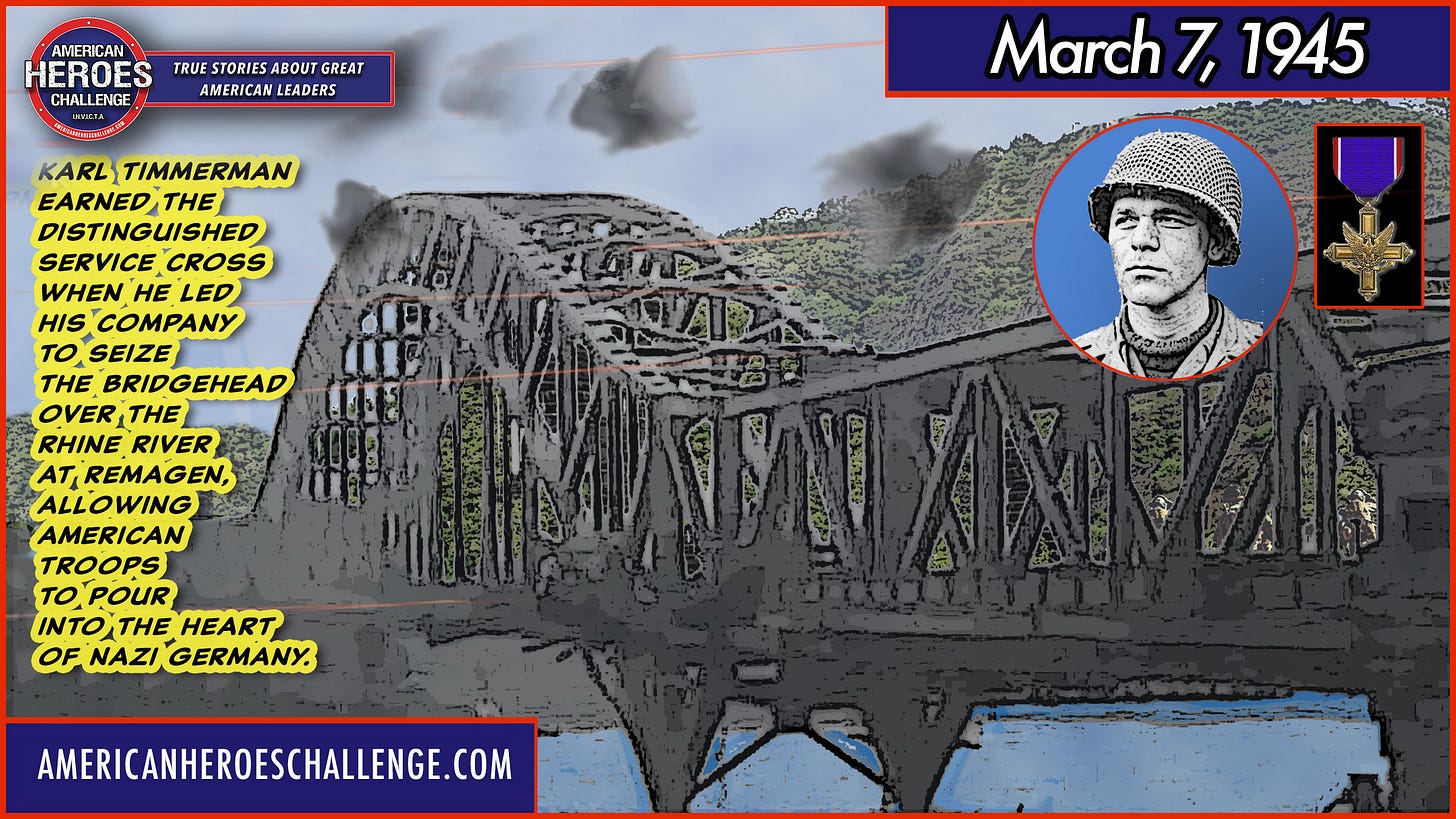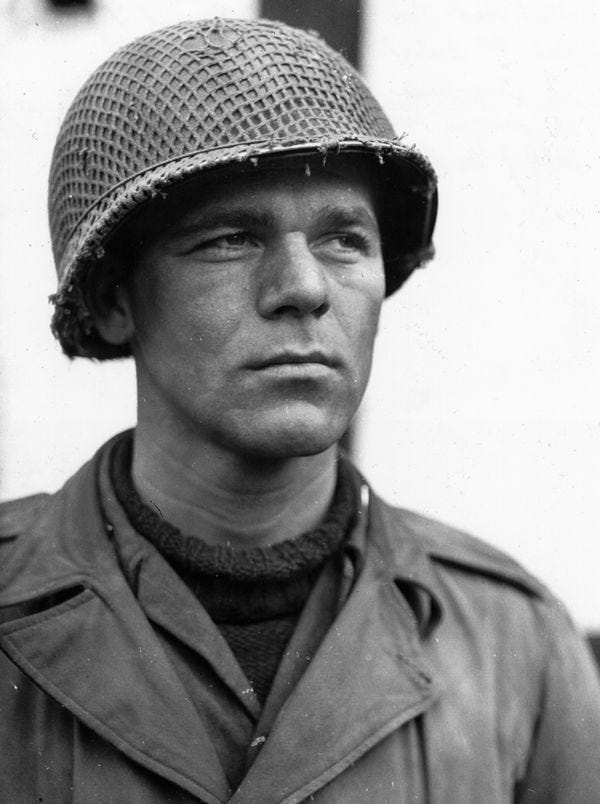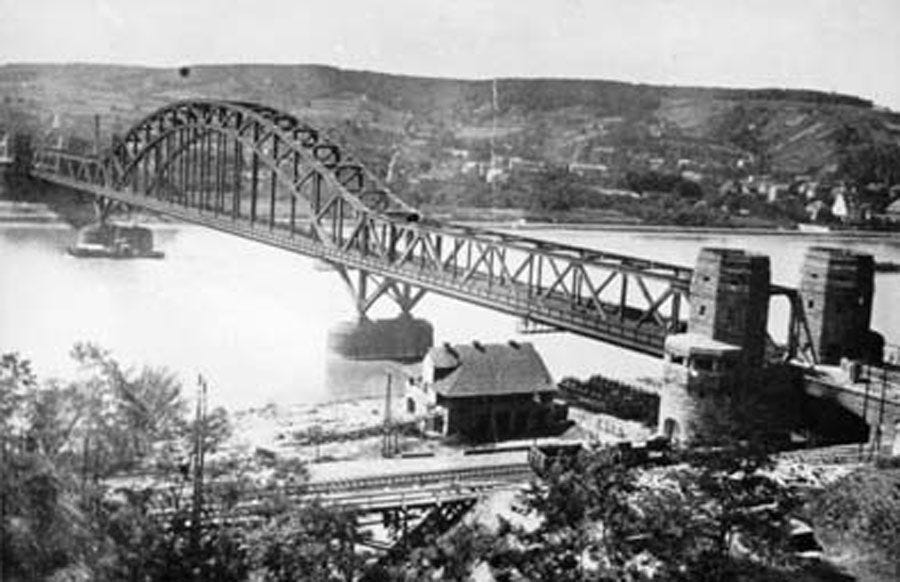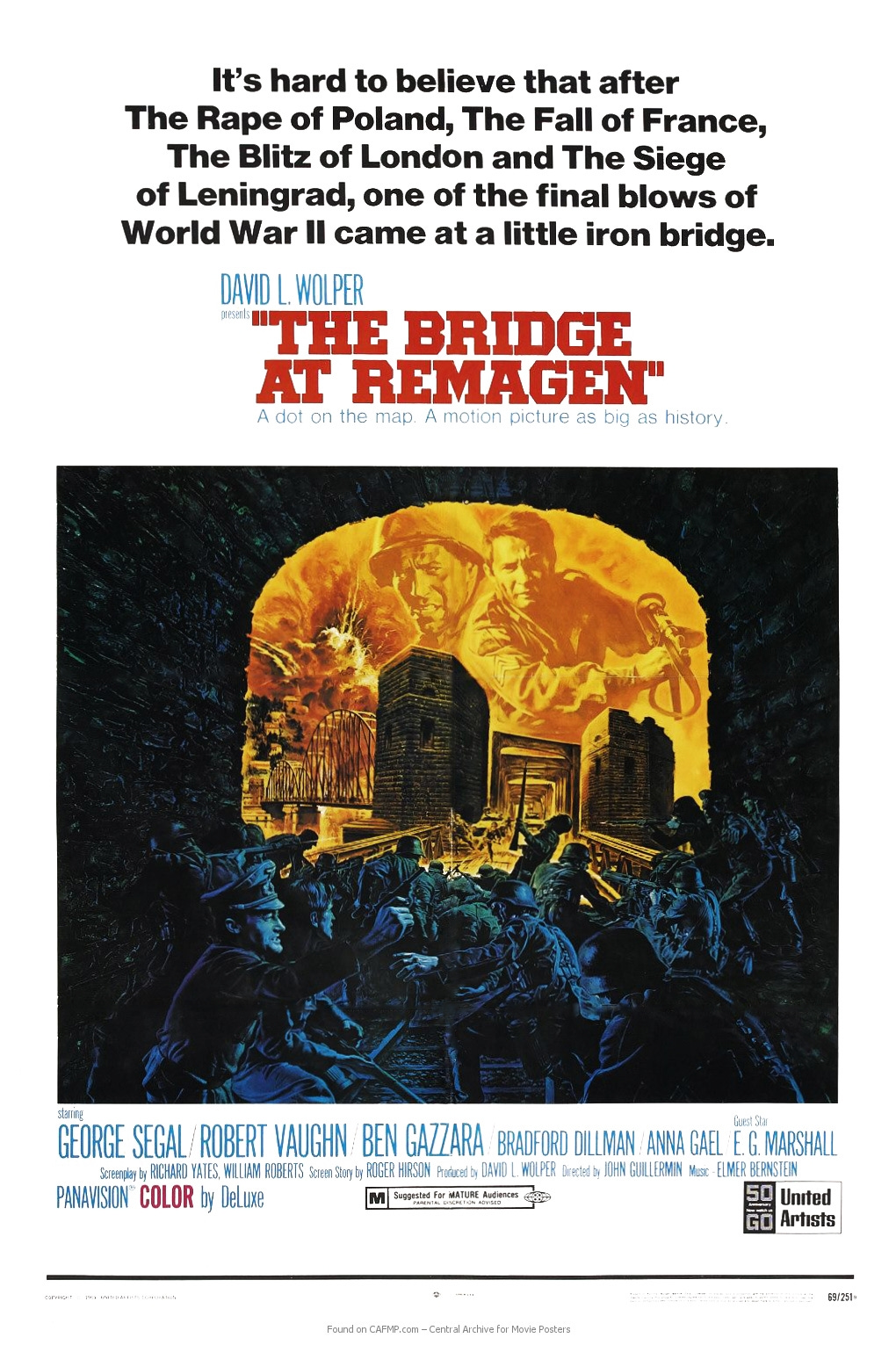March 7 - The Bridge At Remagen
Karl Timmerman & His Soldiers Charge Across The Bridge And Into German 80 Years Ago Today
A leader of courage, resolve, and unbreakable patriotism, Army Lieutenant Karl Timmerman etched his name in history when he led his company in the daring capture of the Ludendorff Bridge at Remagen. Against the odds, he seized the last standing bridge across the Rhine River, defying enemy fire, dismantling explosives, and routing German defenders. His bold actions opened the gateway into the heart of Nazi Germany, accelerating the Reich’s collapse. For his valor, he was awarded the Distinguished Service Cross. We honor and remember this true American hero.
Born in Nebraska, Timmerman was raised with a deep sense of duty. His father had served with the Army of Occupation in Germany in 1919, but a moment of desertion brought shame upon the family. Determined to restore their name, Karl and his three siblings all volunteered for military service—pledging to serve with honor and integrity.
As a young man, Timmerman attended the Citizens Military Training Camp for two summers before graduating high school in 1940. His leadership potential was undeniable, and after joining the Army, he was selected for Officer Candidate School while training with the 3rd Infantry Division. Assigned to the 9th Armored Division, he landed in France in September 1944 and was sent to what was supposed to be a quiet sector—the Ardennes. Instead, he found himself in the maelstrom of the Battle of the Bulge, leading his men through brutal combat near St. Vith. In one of the war’s darkest atrocities, part of his company was captured and executed by the Waffen SS at Malmedy.
Timmerman’s defining moment came on March 7, 1945. The day before, his company commander was wounded, and he stepped up, taking command of Able Company. As American forces reached the western edge of the Remagen Bridge, they were astonished to find it still standing. The high command saw an opportunity—a chance to strike a decisive blow. Timmerman and his men were given a single, electrifying order: take the bridge.
With fearless determination, he led the charge, sending half his men across the span while the others scrambled to cut detonation wires and dismantle explosives. The Germans detonated charges under the bridge’s eastern end, causing it to lurch violently—but it held. Pressing forward under fire, Timmerman and fifteen men stormed the far side, securing it against counterattacks. In a remarkable act of leadership, he negotiated the surrender of 300 German soldiers and civilians.
General Dwight D. Eisenhower declared the bridge to be “worth its weight in gold,” calling its capture “one of those bright opportunities of war which, when quickly and firmly grasped, produce incalculable effects on future operations.” The press hailed the victory as the “Miracle at Remagen.” The bridge stood long enough to allow tens of thousands of American troops to pour across the Rhine before it finally collapsed on March 17, taking the lives of 28 Army engineers. By then, however, the U.S. military had secured its foothold and established additional crossings, sealing Germany’s fate.
While on leave in Paris, Timmerman opened Stars & Stripes to find himself hailed as a hero. But true to his character, he did not rest on his laurels. After World War II, he returned to Nebraska but felt the call of service once more. Reenlisting, he went on to fight in Korea. Tragically, his promising life was cut short when he succumbed to cancer at just 29 years old.
Yet, his legacy endures. Timmerman Park in West Point, Nebraska, stands as a testament to his courage, leadership, and unwavering commitment to duty. His name belongs among the great warriors of American history—an officer who led from the front, a soldier who never wavered, and a patriot who gave everything for his country.
Let us always honor and remember Lieutenant Karl Timmerman.








